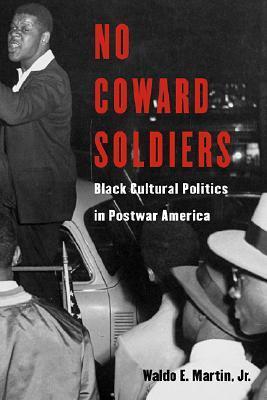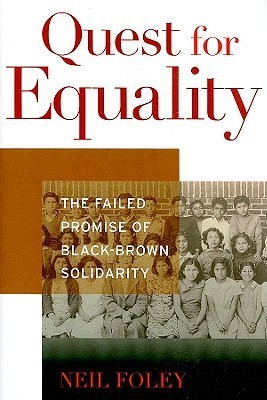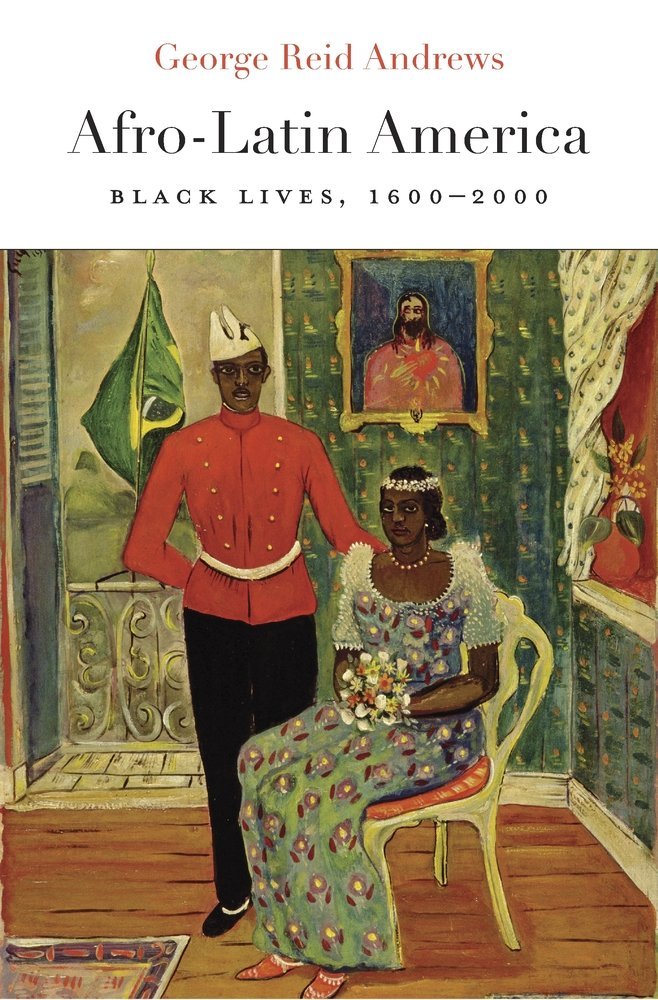


The Nathan I. Huggins Lectures
Series · 5 books · 2005-2022
Books in series

#3
No Coward Soldiers
Black Cultural Politics in Postwar America
2005
In a vibrant and passionate exploration of the twentieth-century civil rights and black power eras in American history, Waldo Martin uses cultural politics as a lens through which to understand the African-American freedom struggle.
In black culture, argues Martin, we see the debate over the profound tension at the core of black the duality of being at once both American and African. And in the transformative postwar period, the intersection between culture and politics became increasingly central to the African-American fight for equality. In freedom songs, in the exuberance of an Aretha Franklin concert, in Faith Ringgold’s exploration of race and sexuality, the personal and social became the political.
Martin explores the place of black culture in this vision and examines the multiple ways in which various forms of expressive culture and African-American cultural figures influenced consciousness and helped effect social action. From the music of John Coltrane and James Brown to the visual art of Jacob Lawrence and Betye Saar to the dance movements of Alvin Ailey and Arthur Mitchell, Martin discusses how, why, and with what consequences culture became a critical battle site in the freedom struggle. And in a fascinating epilogue, he draws the thread of black cultural politics into today’s hip-hop culture.
This engaging book brings a new perspective to the civil rights and black power eras, while illuminating the broader history of American and global freedom struggles.

#8
Quest for Equality
The Failed Promise of Black-Brown Solidarity
2010
As the United States championed principles of freedom and equality during World War II, it denied fundamental rights to many non-white citizens. In the wake of President Franklin Roosevelt’s “Good Neighbor” policy with Latin America, African American and Mexican American civil rights leaders sought ways to make that policy of respect and mutual obligations apply at home as well as abroad. They argued that a whites-only democracy not only denied constitutional protection to every citizen but also threatened the war effort and FDR’s aims.
Neil Foley examines the complex interplay among regional, national, and international politics that plagued the efforts of Mexican Americans and African Americans to find common ground in ending employment discrimination in the defense industries and school segregation in the war years and beyond. Underlying differences in organizational strength, political affiliation, class position, and level of assimilation complicated efforts by Mexican and black Americans to forge strategic alliances in their fight for economic and educational equality. The prospect of interracial cooperation foundered as Mexican American civil rights leaders saw little to gain and much to lose in joining hands with African Americans.
Over a half century later, African American and Latino civil rights organizations continue to seek solutions to relevant issues, including the persistence of de facto segregation in our public schools and the widening gap in wealth and income in America. Yet they continue to grapple with the difficulty of forging solidarity across lines of cultural, class, and racial-ethnic difference, a struggle that remains central to contemporary American life.

#16
Afro-Latin America
Black Lives, 1600–2000
2016
Of the almost 11 million Africans who came to the Americas between 1500 and 1870, two-thirds came to Spanish America and Brazil. Over four centuries, Africans and their descendants both free and enslaved participated in the political, social, and cultural movements that indelibly shaped their countries colonial and post-independence pasts. Yet until very recently Afro-Latin Americans were conspicuously excluded from narratives of their hemisphere s history.
George Reid Andrews seeks to redress this damaging omission by making visible the past and present lives and labors of black Latin Americans in their New World home. He cogently reconstructs the Afro-Latin heritage from the paper trail of slavery and freedom, from the testimonies of individual black men and women, from the writings of visiting African-Americans, and from the efforts of activists and scholars of the twentieth century to bring the Afro-Latin heritage fully into public view.
While most Latin American countries have acknowledged the legacy of slavery, the story still told throughout the region is one of racial democracy the supposedly successful integration and acceptance of African descendants into society. From the 1970s to today, black civil rights movements have challenged that narrative and demanded that its promises of racial equality be made real. They have also called for fuller acknowledgment of Afro-Latin Americans centrality in their countries national histories. "Afro-Latin America" brings that story up to the present, examining debates currently taking place throughout the region on how best to achieve genuine racial equality."

#19
The Black Kingdom of the Nile
2019
For centuries, Egyptian civilization has been at the origin of the story we tell about Western society and culture. But Charles Bonnet's landmark archaeological excavations have unearthed extraordinary sites in present-day Sudan and Egypt that challenge this notion and compel us to look to the interior of black Africa and to the Nubian Kingdom of Kush, where a highly civilized state existed from 2500 to 1500 BCE.
For the past fifty years, Charles Bonnet has been excavating sites in present-day Sudan and Egypt that point to the existence of a sophisticated ancient black African civilization thriving alongside the Egyptians. In The Black Kingdom of the Nile, he gathers the results of these excavations to reveal the distinctively indigenous culture of the black Nubian city of Kerma, the capital of the Kingdom of Kush. This powerful and complex political state organized trade to the Mediterranean basin and built up a military strong enough to resist Egyptian forces.
Further explorations at Dukki Gel, north of Kerma, reveal a major Nubian fortified city of the mid-second millennium BCE featuring complex round and oval structures. Bonnet also found evidence of the revival of another powerful black Nubian society, seven centuries after Egypt conquered Kush around 1500 BCE, when he unearthed seven life-size granite statues of Black Pharaohs (ca. 744-656 BCE). Bonnet's discoveries have shaken our understanding of the origins and sophistication of early civilization in the heart of black Africa.
Until Bonnet began his work, no one knew the extent and power of the Nubian state or the existence of the Black Pharaohs who presided successfully over their lands. The political, military, and commercial achievements revealed in these Nubian sites challenge our long-held belief that the Egyptians were far more advanced than their southern neighbors and that black kingdoms were effectively vassal states. Charles Bonnet's discovery of this lost black kingdom forces us to rewrite the early history of the African continent.

#20
Why White Liberals Fail
Race and Southern Politics from FDR to Trump
2022
It's not the economy, stupid: How liberal politicians' faith in the healing powers of economic growth—and their refusal to address racism—fueled reactionary politics across the South.
From FDR to Clinton, charismatic Democratic leaders have promised a New South—a model of social equality and economic opportunity that is always just around the corner. So how did the region become the stronghold of conservative Republicans in thrall to Donald Trump? After a lifetime studying Southern politics, Anthony Badger has come to a provocative conclusion: white liberals failed because they put their faith in policy solutions as an engine for social change and were reluctant to confront directly the explosive racial politics dividing their constituents.
After World War II, many Americans believed that if the edifice of racial segregation, white supremacy, and voter disfranchisement could be dismantled across the South, the forces of liberalism would prevail. Hopeful that economic modernization and education would bring about gradual racial change, Southern moderates were rattled when civil rights protest and federal intervention forced their hand. Most were fatalistic in the face of massive resistance. When the end of segregation became inevitable, it was largely mediated by Southern businessmen.
Badger follows the senators who refused to sign the Southern Manifesto and rejected Nixon's Southern Strategy. He considers the dilemmas liberals faced across the South, arguing that their failure cannot be blamed simply on entrenched racism. Conservative triumph was not inevitable, he shows, pointing to specific false steps and missed opportunities.
Could the biracial coalition of low-income voters that liberal politicians keep counting on finally materialize? Badger sees hope but urges Democrats not to be too complacent.
Authors
George Reid Andrews
Author · 4 books
George Reid Andrews is Distinguished Professor of History at the University of Pittsburgh.

Anthony J. Badger
Author · 4 books
Anthony John "Tony" Badger is a British academic and historian. Until 2014 he was Paul Mellon Professor of American History at Cambridge University and Master of Clare College, Cambridge.